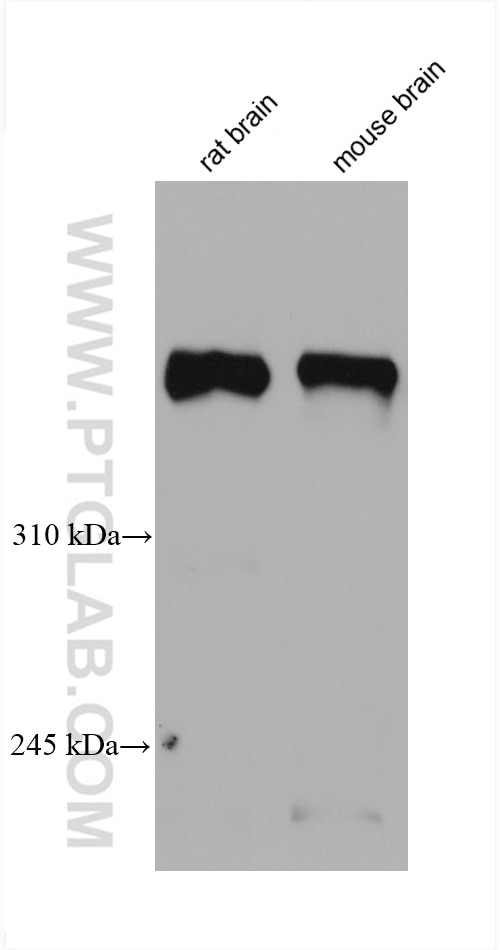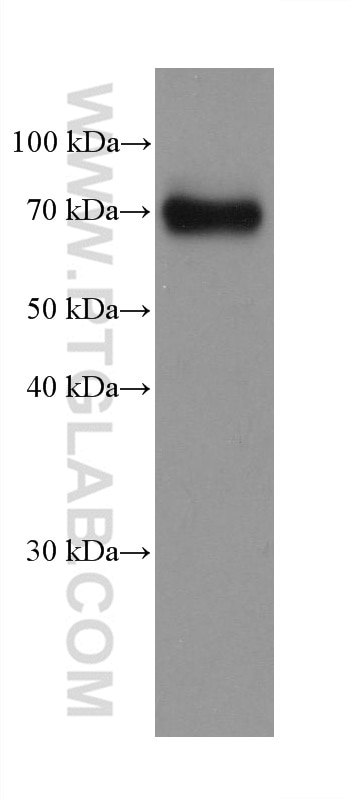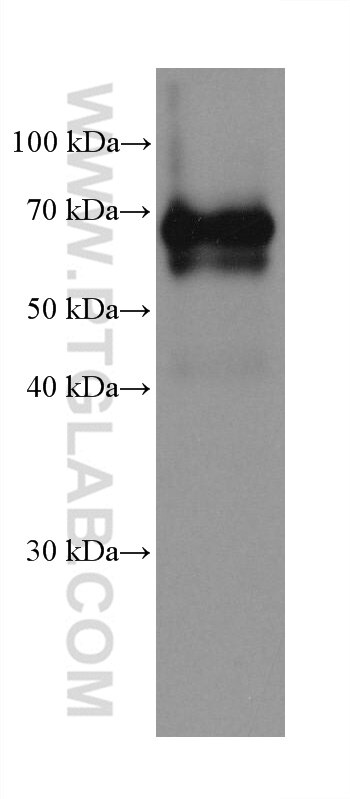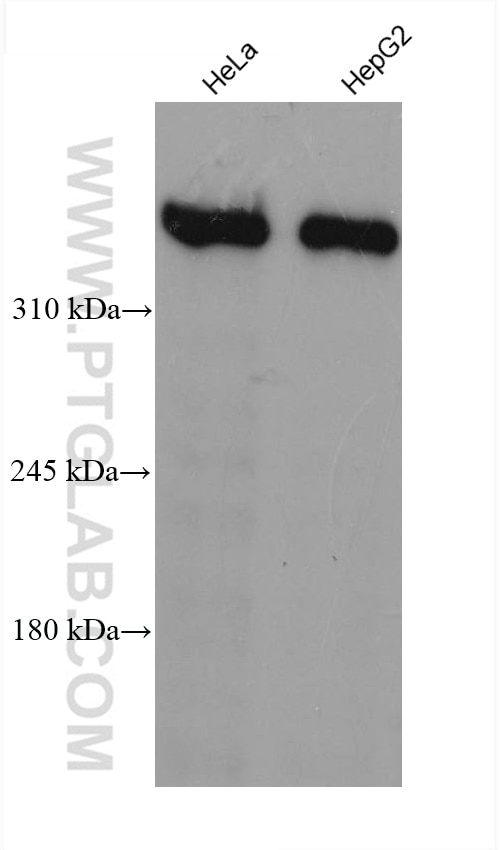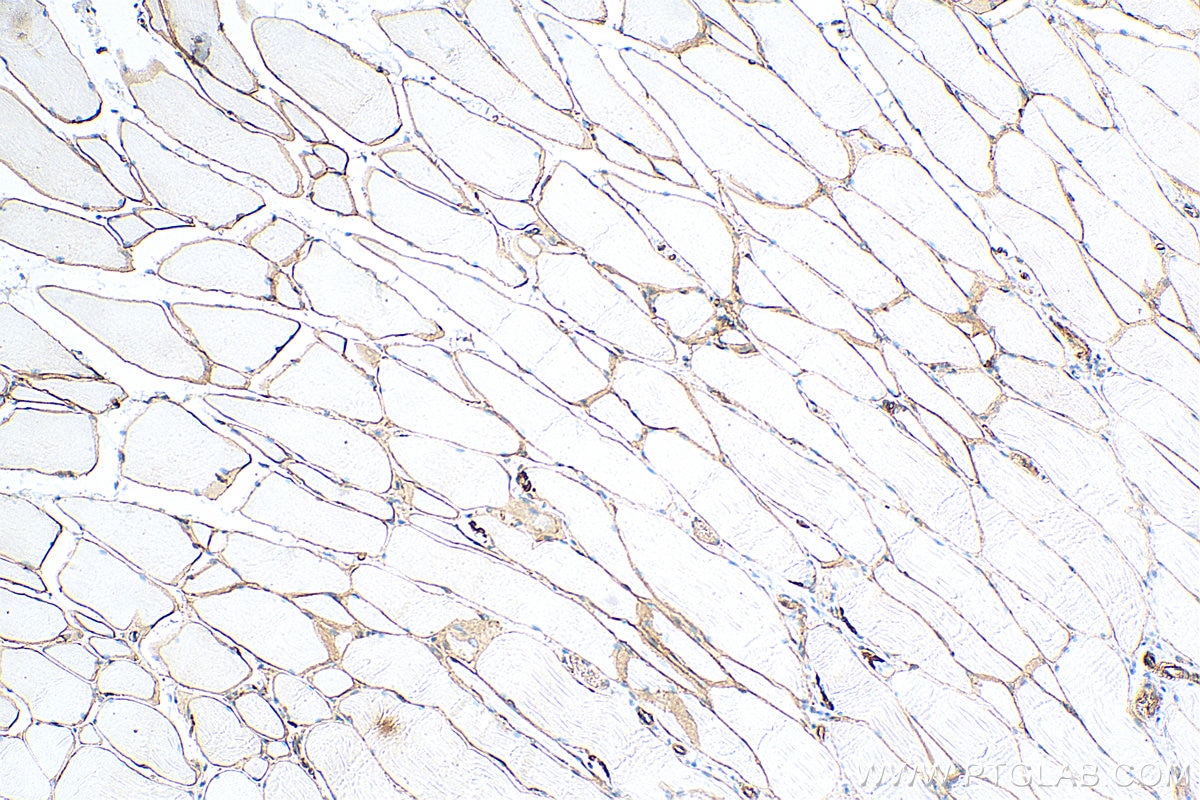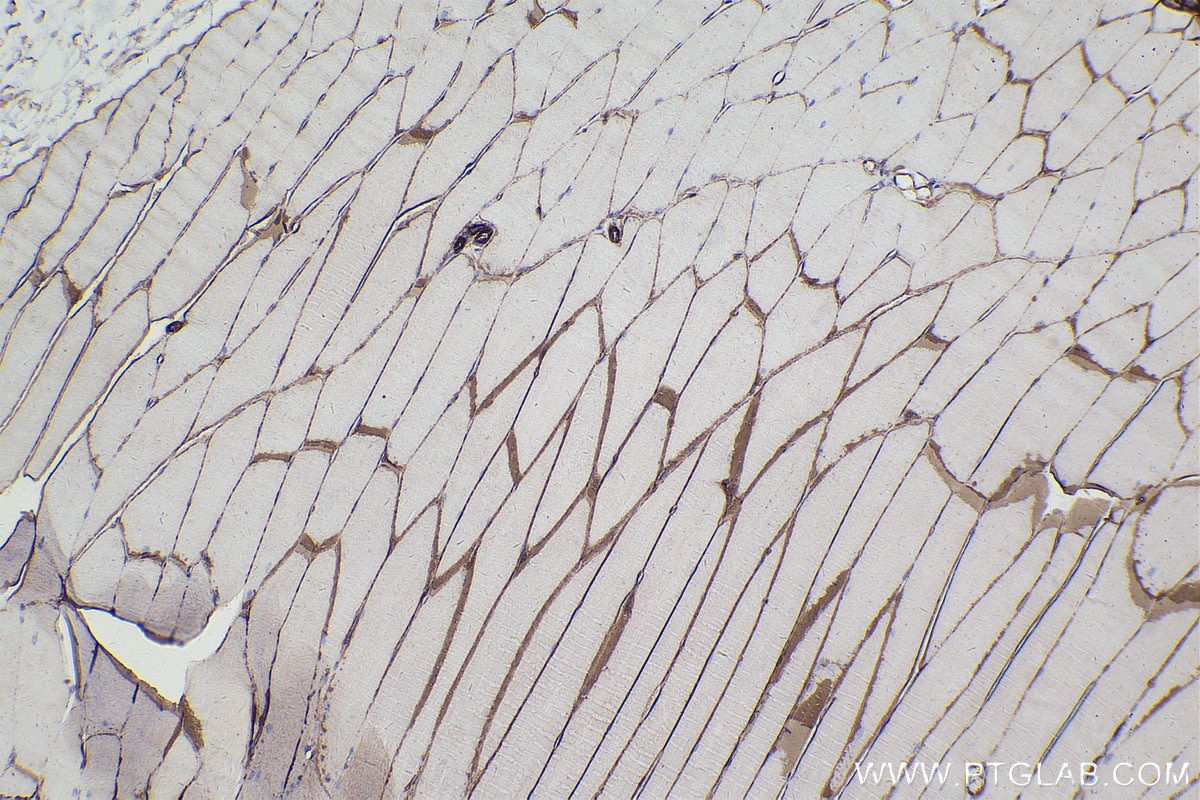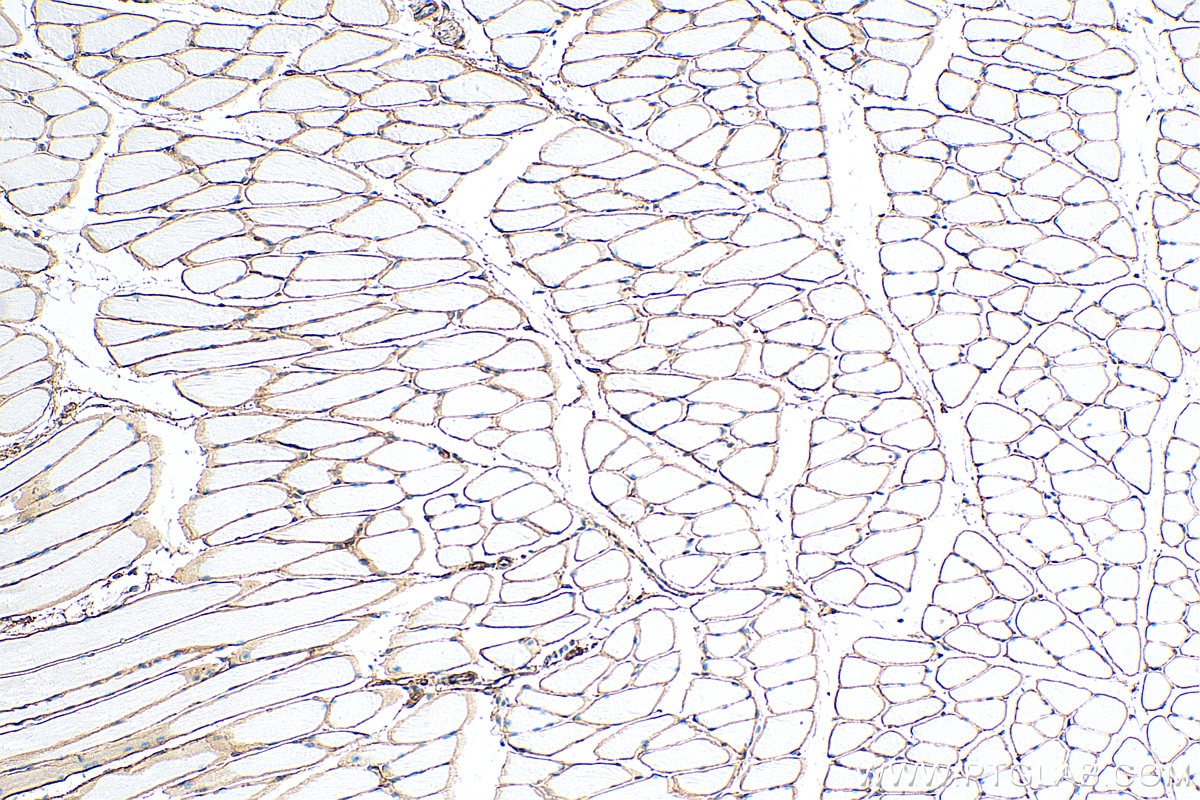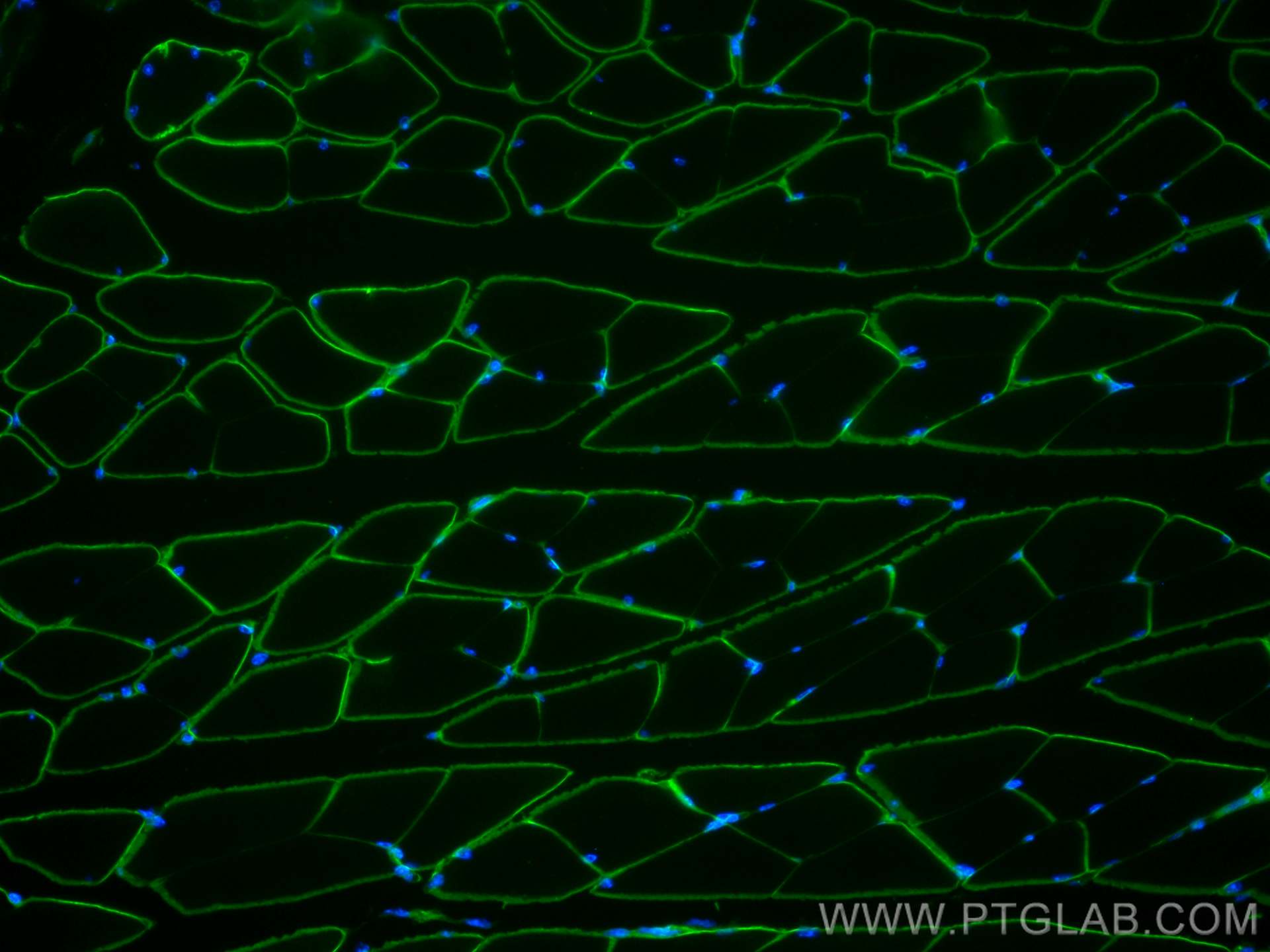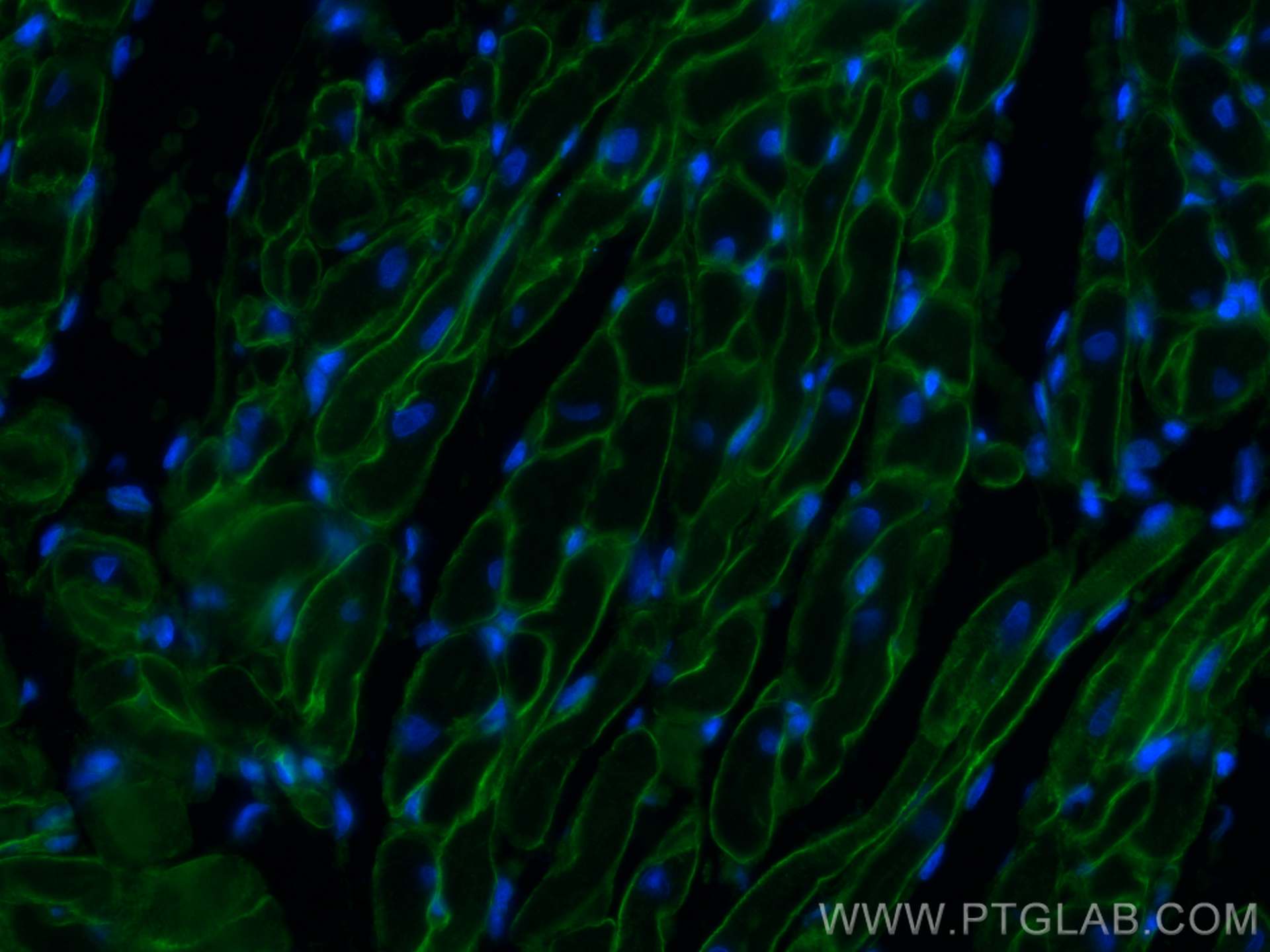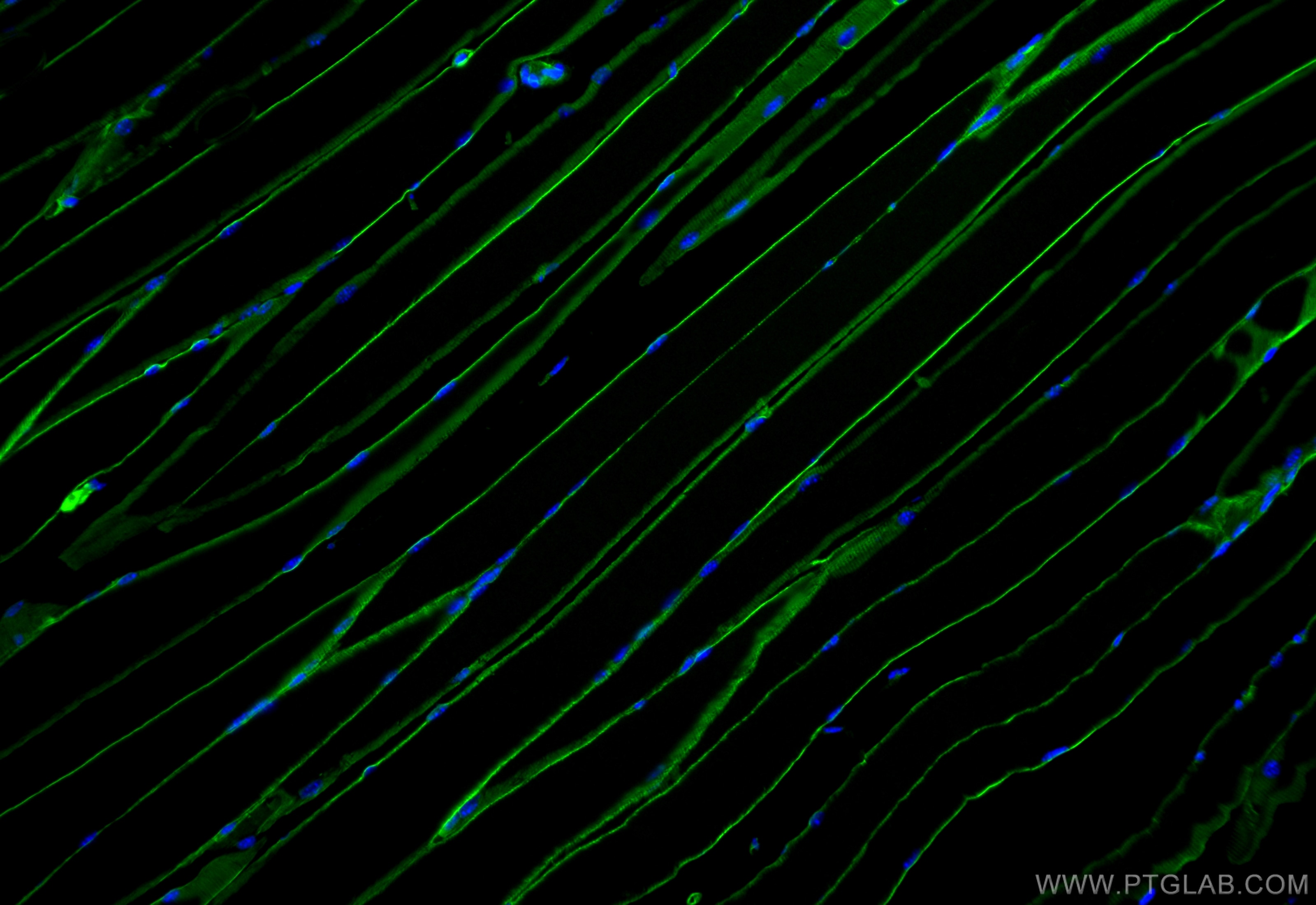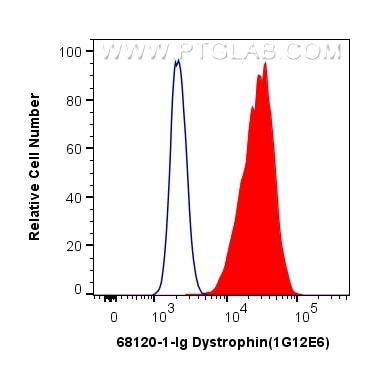Validation Data Gallery
Tested Applications
Recommended dilution
| Application | Dilution |
|---|---|
| It is recommended that this reagent should be titrated in each testing system to obtain optimal results. | |
Product Information
68120-1-PBS targets Dystrophin in WB, IHC, IF-P, FC (Intra), Indirect ELISA applications and shows reactivity with human, mouse, rat samples.
| Tested Reactivity | human, mouse, rat |
| Host / Isotype | Mouse / IgG2a |
| Class | Monoclonal |
| Type | Antibody |
| Immunogen | Dystrophin fusion protein Ag4392 相同性解析による交差性が予測される生物種 |
| Full Name | dystrophin |
| Calculated molecular weight | 3685 aa, 427 kDa |
| Observed molecular weight | 70 kDa, 430 kDa |
| GenBank accession number | BC028720 |
| Gene Symbol | Dystrophin |
| Gene ID (NCBI) | 1756 |
| Conjugate | Unconjugated |
| Form | Liquid |
| Purification Method | Protein A purification |
| UNIPROT ID | P11532 |
| Storage Buffer | PBS only{{ptg:BufferTemp}}7.3 |
| Storage Conditions | Store at -80°C. |
Background Information
Dystrophin (DMD or BMD) is a large muscle protein whose mutations cause Duchenne muscular dystrophy (DMD) and Becker muscular dystrophy (BMD), the childhood neuromuscular disorders that result in progressive muscle weakness, respiratory difficulties and cardiovascular dysfunction. Dystrophin is a crucial component of the dystrophin-glycoprotein complex which is essential for muscle membrane integrity and stability. Dystrophin is located on the cytoplasmic face of the sarcolemma and connects the cytoskeletal network to the sarcolemma and extracellular matrix. Multiple isoforms of dystrophin exist due to the alternative splicing, with a wide range of MW (69-72, 110-143, 271, 426 kDa). Most tissues contain transcripts of several isoforms.
